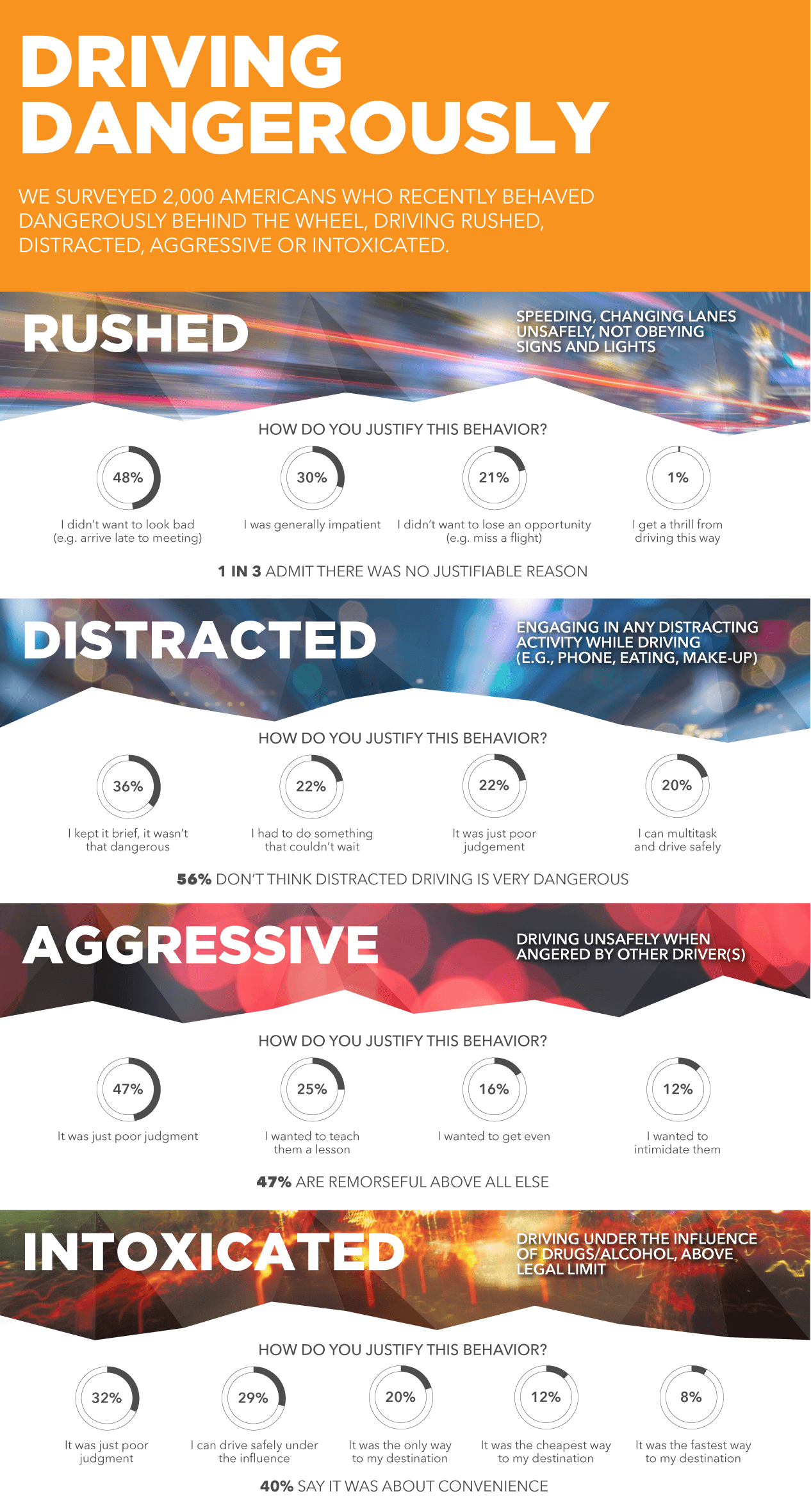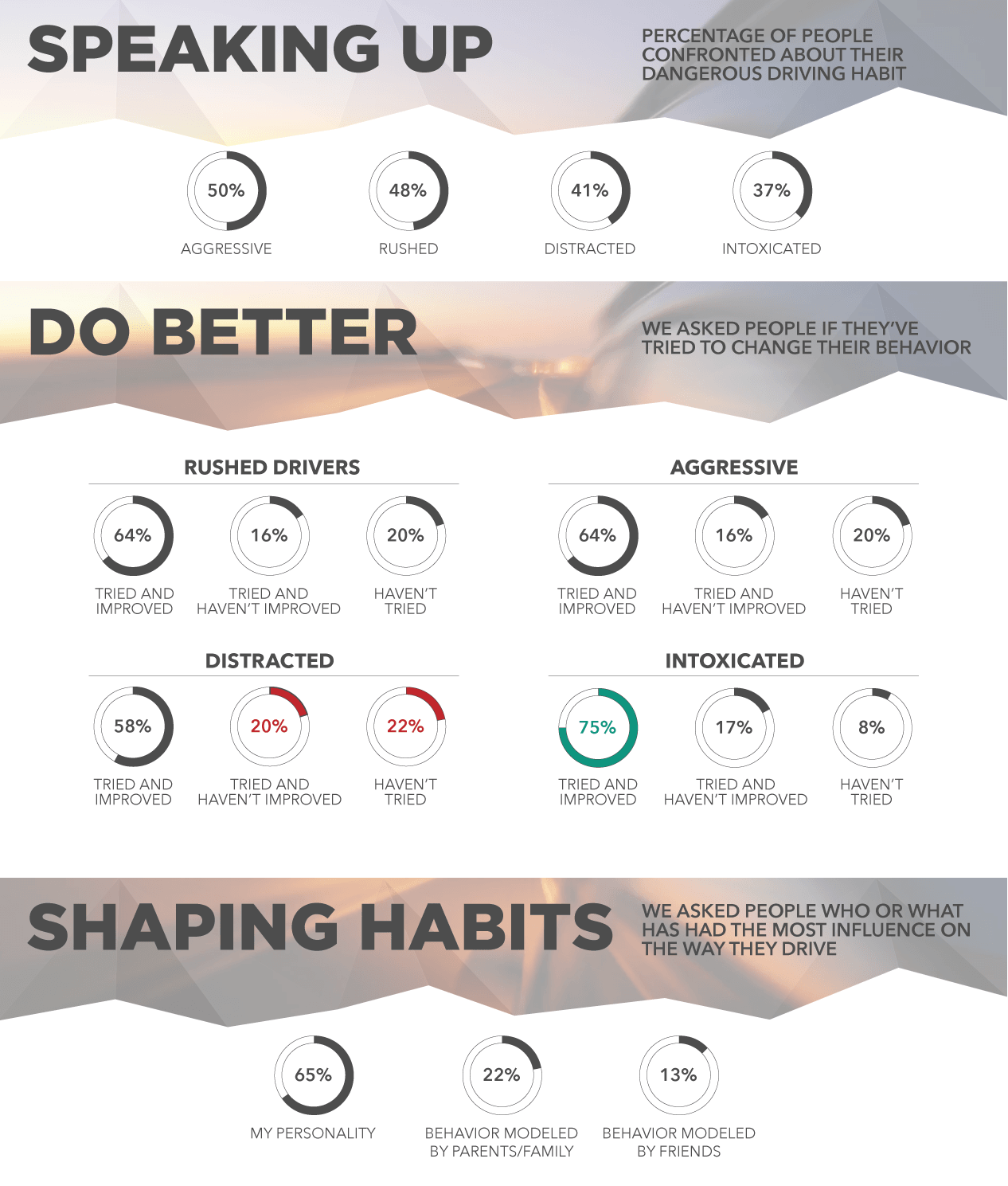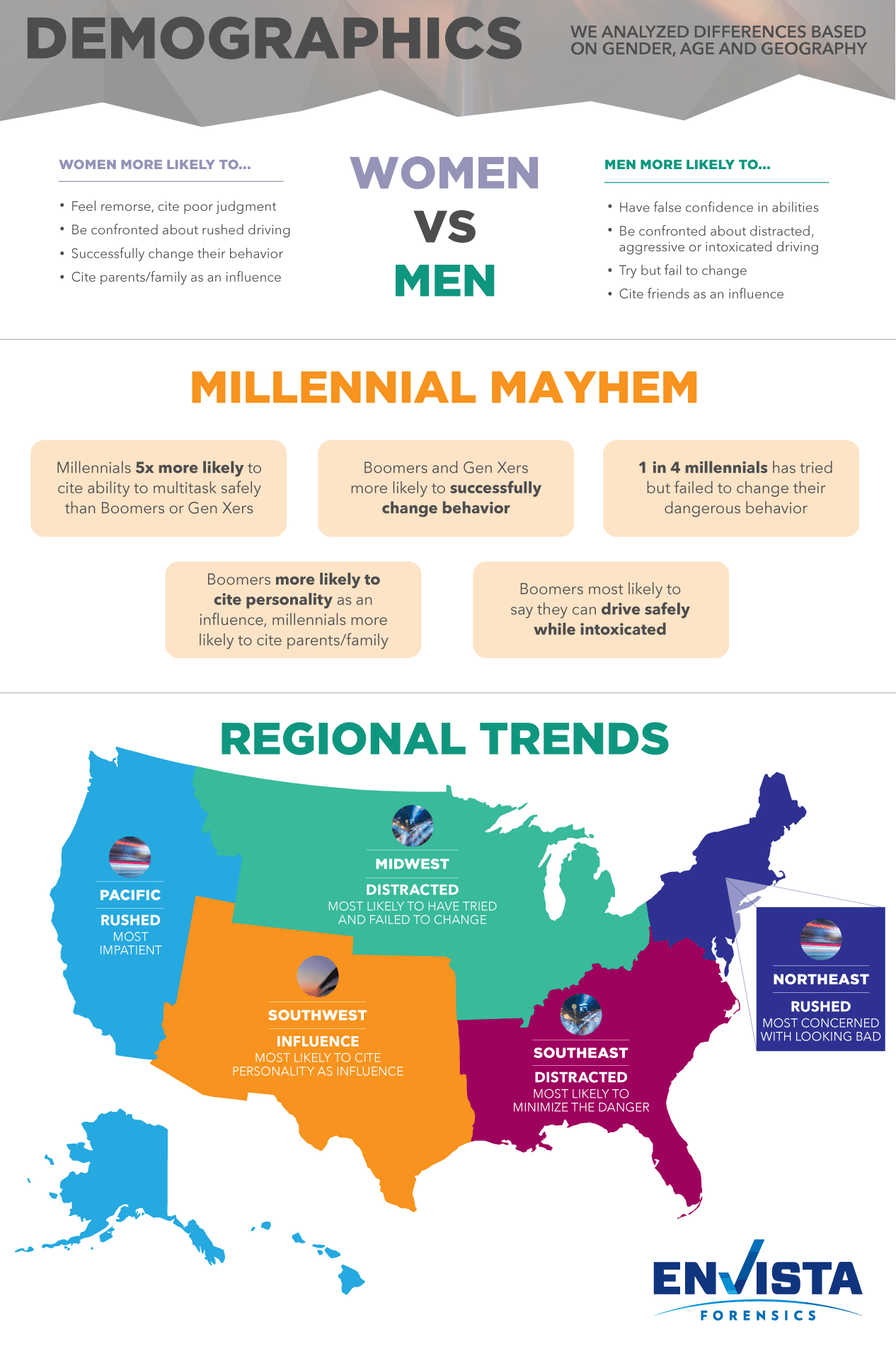Dangerous driving habits come in several forms. Whether it’s speeding, checking cell phones, tailgating or even driving under the influence, many Americans are guilty of bad distracted driving habits on the roads.
Q1 hedge fund letters, conference, scoops etc, Also read Lear Capital
Envista Forensics surveyed 2,000 Americans who admitted to recently driving dangerously behind the wheel to find out what justifications they had, if any, for their behavior.
For those respondents who admitted to rushing, meaning they sped, changed lanes unsafely or ignored traffic signs and lights, nearly half (48-percent) said they didn’t want to look bad, for example, they didn’t want to arrive late to work or a meeting.
Another 30-percent justified rushing on the roads because they were “generally impatient,” while 21-percent said they didn’t want to “lose an opportunity” like missing a flight. Only one-percent of respondents surveyed who admitted to rushing said they did it because they get a “thrill” from driving that way.
Law enforcement across the country is trying to crack down on distracted driving. For the purpose of Envista Forensics’ survey, “distracted” driving means the driver engaged in any distracting activity while behind the wheel whether that was texting, talking on the phone, eating and putting on make-up.
When asked to explain why they drove distracted, 36-percent tried to qualify their behavior by saying they kept it brief and didn’t feel it was that dangerous. Another 22-percent said they had something to do that just couldn’t wait until they were out of the car, 20-percent justified that they could multitask and drive safely, and another 22-percent admitted that their distracted driving was in poor judgement. Overall, more than half (56-percent) of those who admitted to distracted driving said they don’t believe distracted driving is very dangerous.
Aggressive drivers are often easy to spot on the roads, but did you know that nearly half of them say they feel bad about it after? According to Envista Forensics’ survey, 47-percent of respondents said they felt remorse over any other justification about their aggressive driving.
The other respondents said (25-percent) they wanted to teach another driver a lesson on the road, they wanted to get even (16-percent), or they wanted to intimidate another driver (12-percent).
When it comes to drunk driving, 40-percent of those who admitted to getting behind the wheel under the influence said it was all about convenience. Nearly one-third of the respondents surveyed said their drunk driving was just “poor judgment,” while 29-percent claimed they can drive safely under the influence. Other respondents claimed that it was their only method to get to their ultimate destination (20-percent), that it was the cheapest way to get to their destination (12-percent), or that it was the fastest way to their destination (8-percent).
Awareness is a powerful motivator is cutting back on this bad driving behavior. While roughly half of the aggressive drivers surveyed said they’ve been confronted about their behavior on the road, just over a third (37-percent) of intoxicated drivers have been called out for getting behind the wheel in that state.
So who is most likely to change their ways?
An impressive 75-percent of intoxicated drivers said they stopped driving under the influence, while only 22-percent of distracted drivers said they’ve even attempted to stop multitasking on the road.
Both rushed and aggressive drivers found that they were able to improve their driving with practice: 64-percent of each group surveyed said they successfully changed and improved their dangerous behavior.
Envista Forensics also looked at differences in driving behavior between genders. Women surveyed were more likely to feel remorse and cite poor judgment, they’re more likely to be confronted about rushed driving, and they’re more likely to change their behavior.
Men surveyed, on the other hand, are more likely to have false confidences in their abilities, to be confronted about distracted, aggressive and intoxicated driving, men surveyed are also more likely to fail to change their ways.







